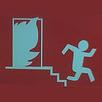|
Larry Mahnken and SG's | ||
|
| Replacement Level Yankees Weblog |

|
|
"Hey, it's free!" | ||
|
|
|
Larry Mahnken and SG's | ||
|
| Replacement Level Yankees Weblog |

|
|
"Hey, it's free!" | ||
|
|
|
Featuring: Larry Mahnken SG sjohnny TVerik Sean McNally Fabian McNally John Brattain This is an awesome FREE site, where you can win money and gift certificates with no skill involved! If you're bored, I HIGHLY recommend checking it out!
 
The New York Yankees Vintage World Series Films DVD Set, available from A&E. Yankees Tickets World Series Tickets MLB All Star Tickets NFL Tickets Purchase your Onlineseats.com is your #1 source for MLB tickets, NY Mets Tickets, Cubs Tickets, Yankees Tickets, Red Sox Tickets, Giants Tickets, Astros Tickets, Angels Tickets, Phillies Tickets.
Buy all your MLB Tickets,
Laser Keyboard Brazil Flowers TickCo.com for premium New York Yankees Tickets Boston Red Sox Tickets Chicago white Sox Tickets A's Tickets Angels Tickets New York Mets Tickets St Louis Cardinals Tickets Cubs Tickets Dodgers Tickets "I'm not a pessimist, I'm an optimist. Things are really worse than I say they are." - Steve South

January 2001 April 2003 May 2003 June 2003 July 2003 August 2003 September 2003 October 2003 November 2003 December 2003 January 2004 February 2004 March 2004 April 2004 May 2004 June 2004 July 2004 August 2004 September 2004 October 2004 November 2004 December 2004 January 2005 February 2005 March 2005 April 2005 May 2005 June 2005 July 2005 August 2005 September 2005 October 2005 November 2005 December 2005 January 2006 February 2006 March 2006 April 2006 May 2006 June 2006 July 2006 August 2006 September 2006 October 2006 November 2006 December 2006 January 2007 February 2007 March 2007 April 2007 May 2007 LINKS Yankees Sites and Columnists Nomaas.org General Baseball Sites & Columnists At Home Plate Rotoauthority.com The Book Blog - Playing the Percentages in Baseball(Tango, MGL, Dolphin) Yankees Blogs Almost Perfect Baby Bombers Baseball Mania Bronx Banter Bugs and Cranks Canyon of Heroes Dugout News Eephus Pitch Here Comes Number 27 High and Tight Lohud Yankees Blog No Sense Worrying Pinstripe Potentials River Ave. Blues Soft Hands The Stat Boy of the Empire Was Watching Yankees Chick Yankees Fans in Foreign Lands Yanks Blog Other Team Blogs Anaheim Angels All the Way Bucco Blog San Francisco Giants Blog Viva El Birdos Look what people have to say about Larry Mahnken's commentary! "Larry, can you be any more of a Yankee apologist?.... Just look past your Yankee myopia and try some objectivity." "Mr. Mahnken is enlightened."
"Wow, Larry. You've produced 25% of the comments on this thread and
said nothing meaningful. That's impressive, even for you."
"After reading all your postings and daily weblog...I believe you have truly become the Phil Pepe of this generation. Now this is not necessarily a good thing."
"you blog sucks, it reeds as it was written by the queer son of mike lupica and roids clemens. i could write a better column by letting a monkey fuk a typewriter. i dont need no 181 million dollar team to write a blog fukkk the spankeees"
"i think his followers have a different sexual preference than most men"
"Boring and predictable."
"Are you the biggest idiot ever?"
"I'm not qualified to write for online media, let alone mainstream
media."
This site is best viewed with a monitor.
|
Disclaimer: If you think this is the official website of the New York Yankees, you're an idiot. Go away. October 31, 2003
Looking forward: First Base by Larry Mahnken
After the Yankees lost the fourth game of the World Series, Joe Torre juggled the lineup, benching Alfonso Soriano and playing Nick Johnson instead of Jason Giambi. When David Wells had to leave after one inning, the bullpen gave up six runs, enough to hold of New York for a 6-4 win. Soriano and Giambi came in to pinch hit in the later innings, though Giambi was inexplicably sent to the plate with nobody on in the ninth, instead of the bases loaded in the seventh. After the series, some of the blame for the loss was directed towards Giambi, who some claimed "begged" out of the lineup--although other reports are that Torre pulled him after seeing him limping. Jon Heyman and Mike Lupica have played this up as a character flaw, Lupica wrote that an another Yankee said that Paul O'Neill would have hidden the injury from Torre. Therefore, Jason Giambi is not Paul O'Neill, and thus is not a winner. Gotta dump him.
October 30, 2003
Manny Ramirez a Yankee? by Larry Mahnken
Art Martone, the brilliant sports editor of the Providence Journal
Looking forward by Larry Mahnken
So, I took a few days off. I needed a few days off.
October 26, 2003
Not with a bang, but a whimper: Florida 2 , New York 0 by Larry Mahnken
Since becoming a hardcore Yankees fan in 1991, I have seen my favorite team win four World Championships, six American League Pennants, make the playoffs nine consecutive years, and be robbed of a playoff appearance and a possible World Championship by the strike. I came in just as the Yankees were climbing out of the cellar (although I had always been a fan, just not devoted), and I witnessed their entire rise to glory. I have, most definitely, been spoiled.
October 25, 2003
Last Dance by Larry Mahnken
I look at tonight's Game Six with anticipation and dread. I don't feel confident that they'll win this game, or certain that they'll lose it, either. I know they can win, I know they should win, but they should also have won all five of these games, and they lost three of them. So much for should.
October 24, 2003
Pathetic: Florida 6, New York 4 by Larry Mahnken
If you're going to focus on one reason the Yankees are one game away from losing the World Series to a vastly inferior team, look at the offense. They've failed to come through with clutch hits time and again this series, failed to score nearly as many runs as they reasonably should have expected to. There's been bad defense, and some poor managerial decisions, but if the Yankees were hitting anywhere near as well as they should be, it wouldn't matter. This isn't the case of dominant Florida starting pitching completely shutting down the Yankees' hitters, as you could say was the case in 2001 against the Diamondbacks. No, the Yankees have actually hit well in this series, but they haven't gotten the big hit in the many, many scoring opportunities they had. If the Yankees were playing well, they would have swept this series. If they were playing just okay...they probably still would have swept this series. Instead, they're playing terribly, and so are now one game away from losing to the Marlins.
October 23, 2003
Wasted Heroics: Florida 4, New York 3 by Larry Mahnken
I've heard from a lot of Red Sox fans in the past week that if Joe Torre was manager of the Red Sox, they, not the Yankees, would have won the American League Pennant. Perhaps. But both Little and Dusty Baker, whose failure to recognize his pitcher was done in the NLCS cost the Cubs a pennant, had a legitimate point in leaving Pedro Martinez and Mark Prior on the mound: if you're going to lose, you might as well lose with your best pitcher.
October 22, 2003
Lucky and good: New York 6, Florida 1 by Larry Mahnken
Sure, everyone was hoping for the Red Sox and Cubs to make it to the World Series, guaranteeing that one of those star-crossed franchises would win their first World Series since the days when Presidents were elected based on issues. Everyone was probably pulling for those two teams to win just so the rest of us wouldn't have to hear their fans whining anymore, but it's probably for the best that they didn't, as most of those fans probably don't understand that nine decades of whining kind of limits the amount of gloating we're willing to put up with when they finally do win.
October 20, 2003
New York 6, Florida 1 by Larry Mahnken
Almost nobody picked the Marlins to beat the Giants, but they did. Of course, if Jose Cruz, Jr. hadn't dropped that ball, or if J.T. Snow hadn't tried to score from second on a single to left, it might have been the Giants who won the series, and maybe in four games.
October 19, 2003
Letdown: Florida 3, New York 2 by Larry Mahnken
I don't know about anyone else, but for the first few innings of last night's game, it didn't feel like the World Series. Obviously, when your team has been in the World Series 6 times in the past eight seasons, you do get used to the way the games feel. But this was different, almost like a mid-summer game against Toronto, and it didn't feel like winning was that important.
October 18, 2003
And this, too, shall pass away by Larry Mahnken
-Abraham Lincoln
October 17, 2003
Miracle in The Bronx: New York 6, Boston 5 by Larry Mahnken
October 16, 2003
Crushed: Boston 9, New York 6 by Larry Mahnken
Well, you didn't think they'd finish the Red Sox off that easily, did you?
October 15, 2003
by Larry Mahnken
I refuse to link to the article, but the Chicago Sun-Times has outed the fan who interfered with the ball.
A Day to Remember--and the Yankees and Red Sox Played, Too!: New York 4, Boston 2 by Larry Mahnken
I don't believe in curses. Boston and Chicago have failed because of bad management, bad luck, and quality opposition standing in their way, not one bad trade or a stupid goat. It doesn't matter if the Red Sox and Cubs never win, or how they lose, I won't believe in curses. It belittles the teams that do win.
October 14, 2003
Baseball Prospectus - Prospectus Today: The Politics of Glory by Larry Mahnken
Chair, Wall. Wall, Chair: Boston 3, New York 2 by Larry Mahnken
If anyone ever again says that they're sick of the Yankees getting all the breaks, take a tape of this game, and beat their brains in with it.
| ||||||||||